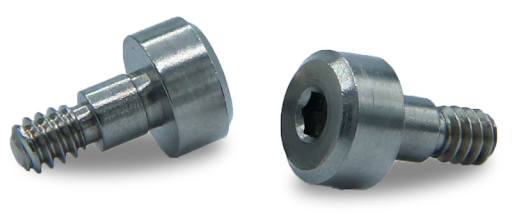In the realm of industrial operations, the reliability and efficiency of machinery are crucial for maintaining productivity and minimizing downtime. One key aspect of ensuring smooth operations is the selection and management of industrial spare parts. High-quality spare parts that are compatible with existing equipment are essential for maintaining optimal performance. This article provides insights into ensuring the quality and compatibility of industrial spare parts, with a particular focus on shoulder screws and custom pressure gauges.
Understanding the Importance of Quality and Compatibility
Industrial spare parts are integral to the functioning of machinery and equipment across various sectors, including manufacturing, energy, and transportation. Ensuring that these parts meet high-quality standards and are compatible with the existing systems is vital for several reasons:
- Operational Efficiency: High-quality spare parts reduce the risk of malfunctions and breakdowns, which can lead to significant production delays and increased operational costs.
- Safety: Using parts that do not meet quality standards can pose safety risks, potentially leading to accidents or equipment damage.
- Longevity: Properly selected and installed spare parts extend the lifespan of machinery and reduce the frequency of replacements.
To achieve these objectives, it is essential to focus on both the quality and compatibility of spare parts, particularly in the context of specific components such as shoulder screws and custom pressure gauges.
Shoulder Screws: Ensuring Precision and Performance
Shoulder screws, also known as shoulder bolts, are crucial components used in various industrial applications. They are characterized by their shoulder—a section of the screw that has a larger diameter than the threaded part. This design feature allows for precise alignment and smooth operation of machinery.
Key Considerations for Shoulder Screws
- Material Quality: Shoulder screws are often subjected to high mechanical stresses. Therefore, selecting screws made from high-grade materials such as stainless steel or alloy steel is essential for durability and performance.
- Dimensional Accuracy: The dimensions of shoulder screws, including the shoulder length and diameter, must be precise to ensure proper fit and alignment. Any deviations can lead to improper functioning of the equipment.
- Thread Specifications: The threaded portion of the shoulder screw should match the specifications of the corresponding nut or tapped hole to ensure secure fastening.
When sourcing shoulder screws, it is advisable to work with reputable suppliers who provide detailed specifications and quality assurances. This ensures that the screws meet industry standards and are suitable for the intended application.
Custom Pressure Gauges: Tailoring Solutions for Specific Needs
Pressure gauges are critical for monitoring and controlling pressure levels in various industrial processes. Custom pressure gauges are designed to meet specific requirements that standard gauges may not address. Ensuring the quality and compatibility of these gauges is crucial for accurate measurements and reliable operation.
Key Considerations for Custom Pressure Gauges
- Calibration and Accuracy: Custom pressure gauges must be calibrated to provide accurate readings. Regular calibration checks and adherence to industry standards are essential for maintaining measurement precision.
- Material and Construction: The materials used in custom pressure gauges should be compatible with the fluids or gases they will measure. For example, gauges exposed to corrosive substances require materials that resist corrosion.
- Design Specifications: Custom pressure gauges should be designed according to the specific pressure ranges and environmental conditions of the application. This ensures that the gauge performs optimally and provides reliable data.
When ordering custom pressure gauges, it is important to provide detailed specifications to the manufacturer. This includes information about the operating environment, pressure range, and any special features required. Working with experienced manufacturers who specialize in custom solutions can help ensure that the gauges meet the necessary standards and perform as expected.
Best Practices for Managing Spare Parts
To further ensure the quality and compatibility of industrial spare parts, consider the following best practices:
- Establish a Reliable Supply Chain: Partner with reputable suppliers who offer high-quality parts and provide clear documentation regarding their specifications and performance.
- Maintain an Inventory: Keep an inventory of critical spare parts to reduce downtime and ensure that replacements are readily available when needed.
- Regularly Review and Update Specifications: As machinery and equipment evolve, review and update the specifications for spare parts to ensure continued compatibility and performance.
Conclusion
In summary, ensuring the quality and compatibility of industrial spare parts is essential for maintaining seamless operations and optimizing machinery performance. By focusing on components like shoulder screws and custom pressure gauges, and adhering to best practices in spare parts management, businesses can enhance operational efficiency, safety, and equipment longevity. Investing in high-quality spare parts and working with reputable suppliers will contribute to a more reliable and productive industrial environment.

